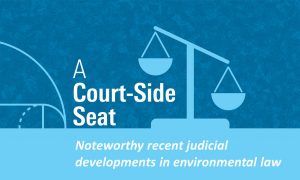On August 13, 2019, in a case that may have an impact on the leasing of federal lands for energy development in the future, the U.S. District Court for the Missoula, Montana Division, issued a ruling in the case of Western Organization of Resource Councils v. Bernhardt, which involves the application of the Federal Advisory Committee Act (FACA) to the Department of the Interior’s Royalty Policy Committee. This advisory committee, initially established in 1995 to provide advice to the Secretary on issues related to the leasing of federal and Indian lands for energy and mineral resources production, is subject to the provisions of FACA, codified at 5 U.S.C. app. Sections 1-16. The plaintiffs challenged the operations of this advisory committee, which was reestablished for two years beginning in 2017, because it allegedly “acts in secret and works to advance the goals of only one interest: the extractive industries that profit from the development of public gas, oil, and coal.” More specifically, the plaintiffs alleged that this advisory committee violated FACA because: (a) it was not properly established as provided in the implementing GSA rules (which are located at 41 CFR Section 102-3); (b) did not provide public notice of its meetings and publicly disseminate its materials; (c) ensure that its membership was fairly balanced; and (d) failed to exercise independent judgment without inappropriate influences from special interests.
Continue Reading ›
 Gravel2Gavel Construction & Real Estate Law Blog
Gravel2Gavel Construction & Real Estate Law Blog



